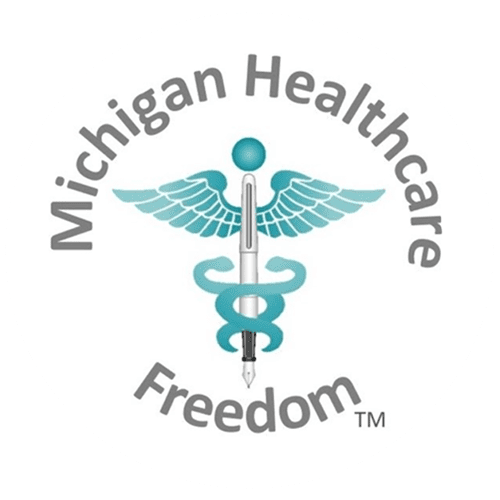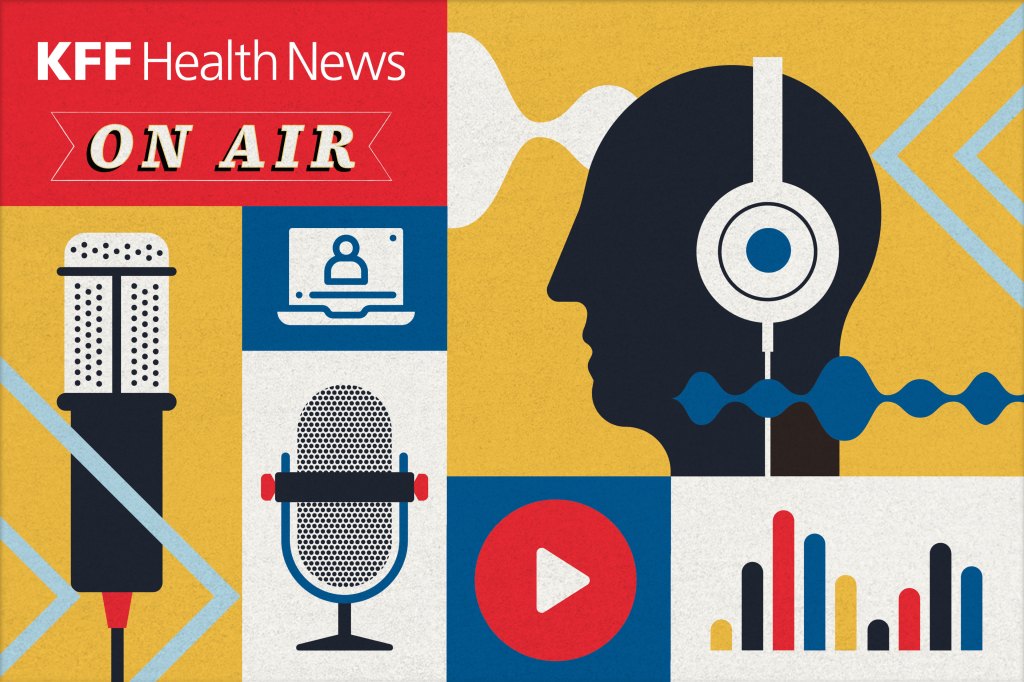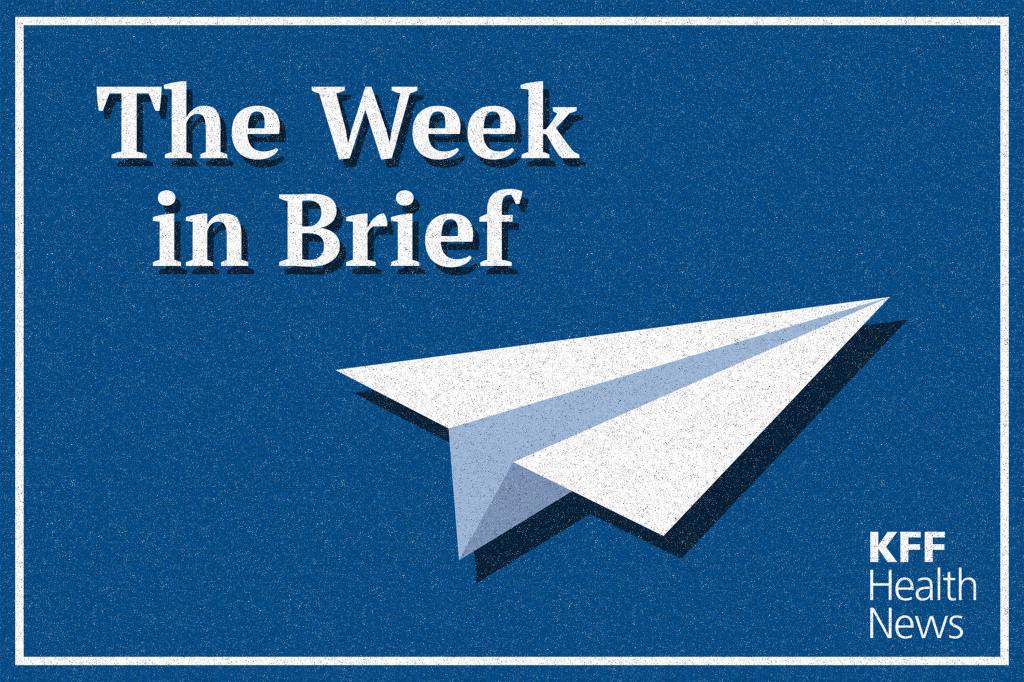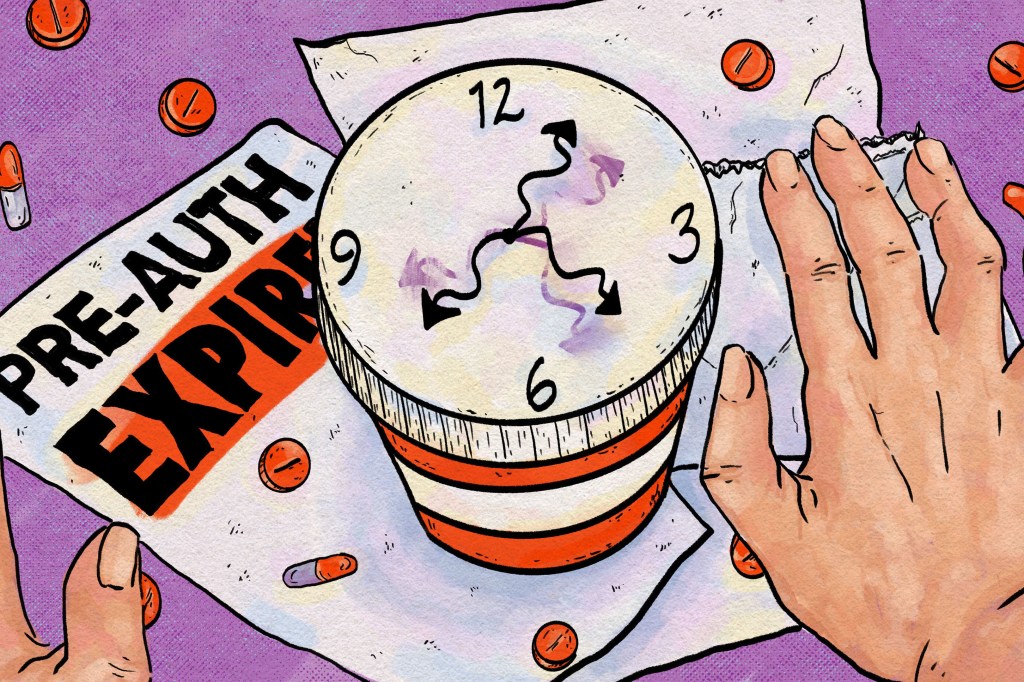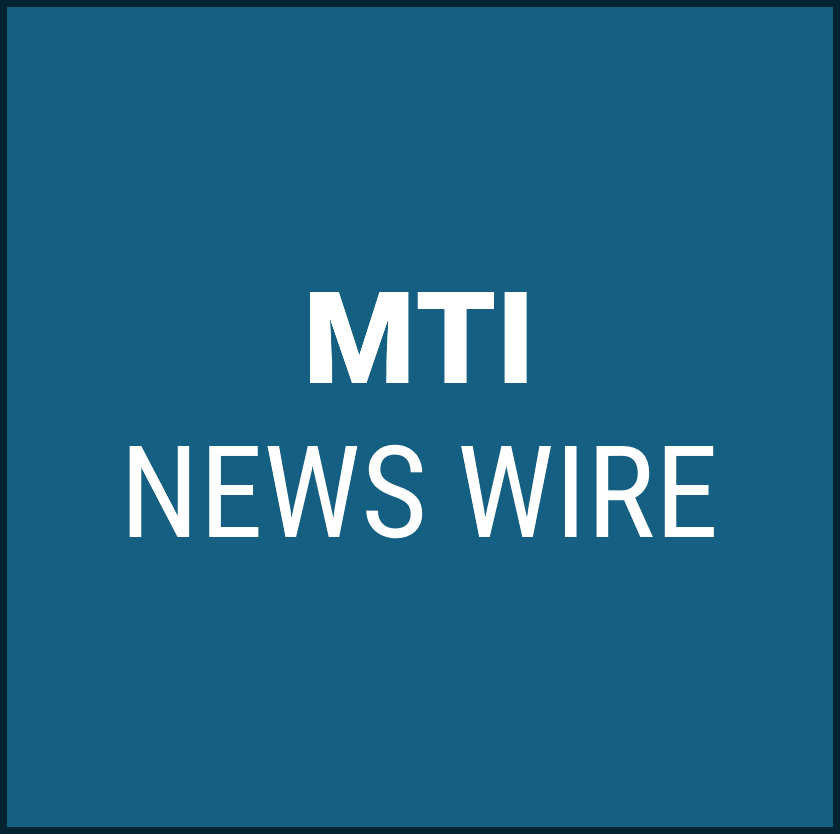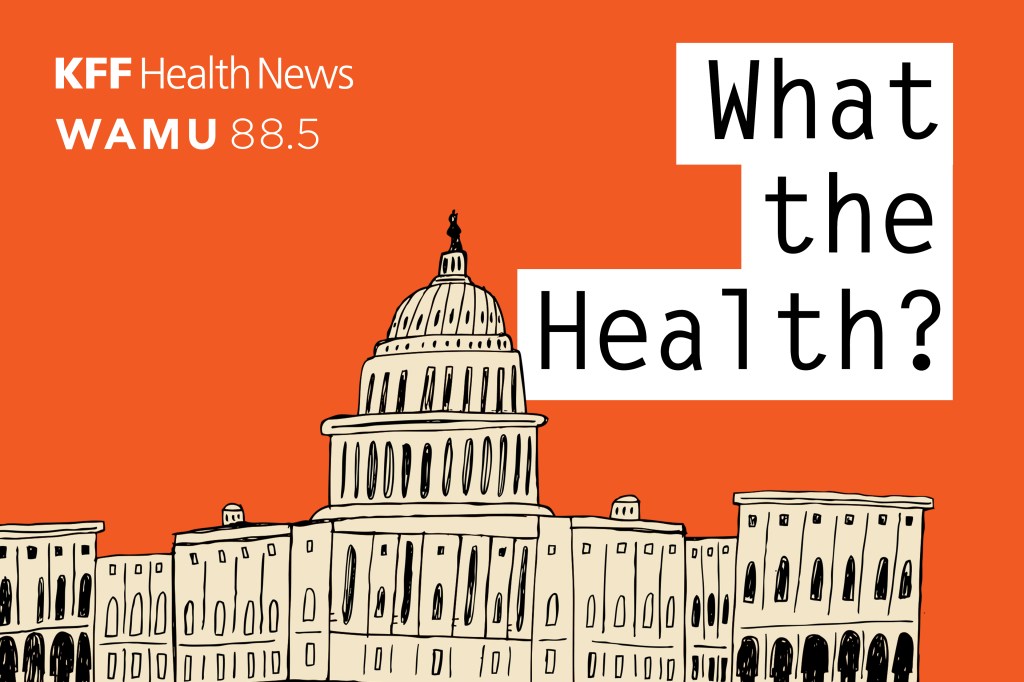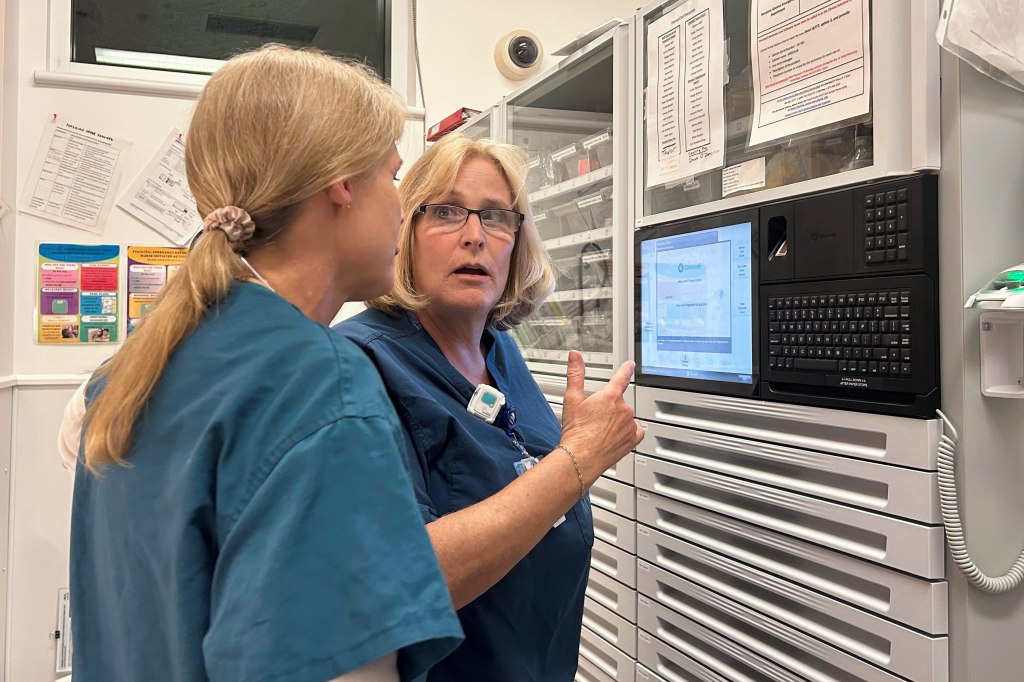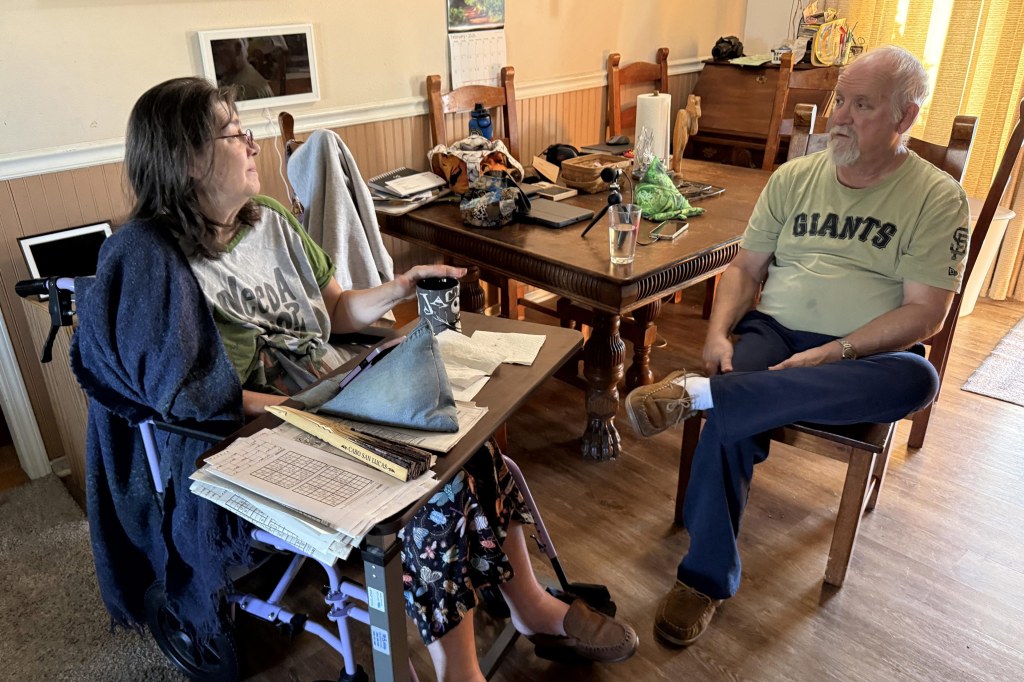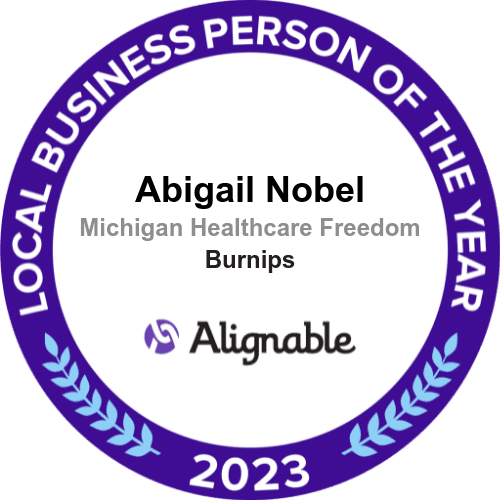- The dental workforce trends that will dominate 2026
- Federal Medicaid cuts threaten dental care access: See the potential impact by state
- Children’s Mercy raises $150M for mental healthcare
- California awards $291M to expand behavioral health housing, services
- Think bigger – Turning AI from Trends to Long-Term Transformation
- UnityPoint Health hospital names market chief nursing officer
- OhioHealth builds well-being programs to reshape caregiver culture
- Washington hospital staff vote ‘no confidence’ in management company
- U of Mississippi Medical Center restores phone lines after cyberattack
- 13 health system IT leadership moves
- How health systems are repositioning informatics
- Mississippi hospital names COO
- Ex-Amazon Health leader joins Spotify founder’s health tech startup
- Know the True Value of Your Lab When an Offer Is on the Table
- U of California offers 32% wage hike in union talks
- UF Health taps new outpatient senior VP
- UAMS names new director of cardiovascular medicine division
- CMS’ add-on billing code boosts specialist pay: Study
- Lawmakers introduce bill to reverse Medicaid cuts, expand Medicare benefits
- Florida medical center to expand with ASC
- New Jersey woman charged with practicing unlicensed dentistry
- CMS extends hospital-at-home waivers for 5 years: What ASCs need to know
- 100+ organizations call on CMS to revise 2027 MA rates
- The retention breakthrough anesthesia needs
- Oklahoma advances interstate compact bill
- Brown University Health names new chief of cardiac surgery
- UNC Health Appalachian offers psychiatric physician training program
- Former PepperPointe Partnerships COO joins DPO
- The Smilist expands into Virginia
- Physician-led orthopedic ASC opens in Florida
- Colorado Medicaid ABA audit finds $77.8M in improper payments
- Georgia opens 30-bed forensic mental health unit to ease jail backlog
- Pennsylvania county cuts ribbon on $19.8M mental health diversion center
- Outpatient cardiology’s CMS whiplash
- 12 new ASCs in February
- UHS to roll out behavioral health revenue cycle AI tools in 2026
- UHS to roll out behavioral health revenue cycle AI tools in 2026
- 15 dentists making headlines
- CMS to suspend enrollment into Elevance’s Medicare Advantage plans
- Report: Most states investing in value-based care with Rural Health Transformation Program
- U.S. Tops 1,100 Measles Cases This Year as Outbreaks Grow
- FDA To Offer Cash Bonuses for Faster Drug Reviews
- 10 providers seeking RCM talent
- PDS Health added de novos across 3 states in February
- Novant posts 4.8% operating margin in 2025
- 'One2PrEP': Gilead's 1st Yeztugo DTC ad reimagines hit song to highlight biannual dosing
- Cleveland Clinic posts $913M operating income, 5% margin — 7 things to know
- Former Optum CEO Heather Cianfrocco to depart UnitedHealth Group
- New Drug, Acoziborole, Could Boost Efforts to Wipe Out Sleeping Sickness
- Chocolate Male Supplement Recalled Over Hidden Erectile Dysfunction Drug
- Clinician Engagement: The Operating Lever Behind Margin and Throughput
- Your Anesthesia Subsidy: Key Questions Every Hospital C-Suite Must Answer
- Amid unfolding Middle East war, pharma giants keep close eye on employee safety, supply chains
- CMS set to suspend enrollment in Elevance Health's Medicare Advantage plans
- Kennedy adds 2 new members to CDC’s vaccine panel ahead of delayed meeting
- Kennedy adds 2 new members to CDC’s vaccine panel ahead of delayed meeting
- Urban Traffic Noise Disrupts Sleep, Affects Heart Health After One Night
- Hormone Therapy Might Be Unnecessary For Some Prostate Cancer Patients
- Benzodiazepine Use Down In U.S., But OD Risk Remains, Study Says
- GLP-1 Drugs Might Ease Chronic Migraine, Study Says
- Blood Test Reveals Alcohol-Related Liver Disease
- Telemedicine Visits Cost Five Times Less Than In-Clinic Care
- Families Defend Disability Services Amid Medicaid Cuts
- Medicaid Is Paying for More Dental Care. GOP Cuts Threaten To Reverse the Trend.
- Bavarian Nordic CEO to follow board chair out the door after failed private equity takeover
- Ascendis gains more altitude with FDA approval for dwarfism drug Yuviwel
- CDMO Quotient extends Ipsen supply pact for rare disease drug Sohonos
- Quest Diagnostics launches Google-powered AI chatbot to help patients understand lab results
- Tennr takes aim at phone call bottlenecks as it builds out automation for patient referral process
- DoseSpot, Arrive Health merge to combine prescribing tools with pharmacy, medical benefit data
- Why Digital Tool are Needed to Cope with Increasing Pressures in MedTech Innovation
- Why Digital Tool are Needed to Cope with Increasing Pressures in MedTech Innovation
- Electronics Pollution Pose Added Threat to Endangered Dolphins, Porpoises
- Flea And Tick Pills May Pose Environmental Risks, Study Finds
- ICE, ALS, Addiction Medicine, and Robotic Ultrasounds: Journalists Sound Off on All That and More
- 11 behavioral health executive moves to know
- 3 behavioral healthcare M&A deals in 2026
- Anthem Blue Cross of California pushes E/M downcoding policy to April
- Iowa dentist surrenders license
- Temple University gets approval for $3.19M rural dental clinic
- A Canadian Hospital Scoops Up Nurses Who No Longer Feel Safe in Trump’s America
- Statement on the Adoption of Final Rules Under the Holding Foreign Insiders Accountable Act
- Statement on Final Rules for the Holding Foreign Insiders Accountable Act
- State Medicaid budgets to weather $664B reduction through 2034 due to OBBBA: RAND
- Clover Health CEO said company sees opportunity in complex MA environment
- How pharma marketers are capturing the power of podcasts to connect with consumers
- Cigna's Evernorth quietly acquires hospital pharmacy CarepathRx
- Walgreens debuts virtual weight management clinic with access to GLP-1 meds
- New Obamacare Rules Could Raise Deductibles to $31K For Families
- Study Suggests One Common Amino Acid May Affect How Long Men Live
- Merck to wind down Gardasil production at N.C. plant, lay off 150-plus
- Walmart Great Value Cottage Cheese Recalled Over Pasteurization Issue
- Chris Bosh Says He’s 'Lucky To Be Alive' After Sudden Health Scare
- Patrick Kennedy: Collab with MAHA is essential to address mental health crisis
- Lilly debuts Nvidia supercomputer with fanfare and focus on escaping traditional pharma lifecycle
- Alignment CEO John Kao offers measured response to proposed 2027 MA rates
- Sanofi, Genentech, Kedrion back star-studded bleeding disorder awareness campaign
- Op-ed: Our patients deserve better safety reporting. AI could be the answer
- After CHMP nod, Moderna CEO applauds EU's 'rigorous scientific review'
- UCB's fast-growing Bimzelx leaps across blockbuster sales threshold as HS momentum builds
- How the Brain Learns to Have Seizures During Sleep
- Blood Test Can Predict Short-Term Survival Among Seniors
- Why Turning 19 Spikes Medicaid Loss for Millions
- Crash Course Might Speed Brain Stimulation Treatment For Depression, Study Suggests
- Wildfire Smoke Linked To Increase In Violent Assaults
- More Parents Are Refusing A Life-Saving Shot For Their Newborns, Study Finds
- He Needs an Expensive Drug. A Copay Card Helped — Until It Didn’t.
- To Avoid Care Disruptions, Know When the Clock Runs Out on Your Prior Authorization
- As SCOTUS takes on 'skinny label' review, top US lawyer sides with generics maker
- Lake Nona Impact Forum: There can't be longevity without tech
- Fierce Pharma Asia—China deal growth; Daiichi's new CMO; Astellas-Vir bispecific tie-up
- Autoimmune CAR-T: Navigating the FDA’s new regulatory playbook
- FDA Approval for BIOTRONIK Solia CSP S Pacing Lead For LBBAP
- FDA Approval for BIOTRONIK Solia CSP S Pacing Lead For LBBAP
- Catalyst OrthoScience gets FDA 510(k) Clearance of Archer® Patient-Specific Instrumentation for Shoulder Arthroplasty
- Catalyst OrthoScience gets FDA 510(k) Clearance of Archer® Patient-Specific Instrumentation for Shoulder Arthroplasty
- Smith+Nephew signs distribution agreement with SI-BONE
- Smith+Nephew signs distribution agreement with SI-BONE
- Quantum Surgical Acquires NeuWave Medical, Inc.
- Quantum Surgical Acquires NeuWave Medical, Inc.
- How Pharma is Expanding its Global Footprint to Advance Clinical Research
- Partnering to Advance Drug Delivery Innovation
- What the Health? From KFF Health News: What About the State of Health?
- Teladoc Health reports slower growth, offers cautious 2026 outlook as it shifts telehealth model
- CFO Mark Kaye to take the helm at Carelon in leadership shake-up at Elevance Health
- Insurance groups say proposed flat Medicare Advantage rates fail to meet the moment
- Health Gorilla urges court to toss lawsuit filed by Epic, health systems
- Stryker launches Synchfix™ EVT, expanding options for flexible syndesmotic fixation
- Stryker launches Synchfix™ EVT, expanding options for flexible syndesmotic fixation
- Democrat-Led States Sue Trump Administration Over Cuts to Childhood Vaccine Schedule
- CDC Vaccine Advisory Panel To Revisit COVID Shot Safety Next Month
- Frozen Blueberry Recall Issued Across Four States for Listeria
- Boehringer's Hernexeos secures speedy first-line expansion in FDA's 2nd national priority nod
- 'Like talking to a brick wall': Senate hearing takes aim at FDA's rare disease review process
- After delay, CDC vaccine panel sets new dates to discuss long COVID and mRNA shot safety
- Decision Criteria for Technology Commercialization of Medical Devices in 2026
- Decision Criteria for Technology Commercialization of Medical Devices in 2026
- Cientos de enfermeros estadounidenses dejan atrás el Estados Unidos de Trump y eligen trabajar en Canadá
- Continuous Cardiac Monitoring: Redefining the “End” of a Clinical Study?
- Continuous Cardiac Monitoring: Redefining the “End” of a Clinical Study?
- Could Drone-Delivered Defibrillators Save Lives?
- Inflammation Linked To Brain Damage, Memory Problems Among Football Players
- Early Birds, Active Folks Less Likely To Develop ALS
- Disasters Can Affect Mental Health A Decade Later, Review Finds
- AI Chatbots Can Contribute To Worsening Mental Illness, Study Finds
- Newborns Exposed to More ‘Forever Chemicals’ Than Once Thought
- Study Highlights Unique Parenting Struggles of Younger Patients With Heart Disease
- Altman-backed startup Verifiable rolls out AI agent to automate credentialing
- ‘You Aren’t Trapped’: Hundreds of US Nurses Choose Canada Over Trump’s America
- ‘Kind of Morbid’: Health Premiums Threaten Their Nest Egg. A Terminal Diagnosis May Spare It.

We've posted before about the billions Michigan spends to create what is essentially state-run mental health.
This series of meetings targeted specific mental health regulations, as well as state-run data centers (background info below).
HB 4038 tweaks Michigan's Medicaid scam for federal dollars, about which more here.
Wednesday, May 21, 2025 9:00 AM
AGENDA
HB 4037 (Rep. Rogers)
Records: health; health information exchange; establish certain requirements to operate a health data utility.HB 4038 (Rep. VanderWall)
Insurance: other; allocation of revenue under the insurance provider assessment act; modify.HB 4218 (Rep. Thompson)
Mental health: other; recipient rights advisory committee membership; modify.HB 4219 (Rep. Thompson)
Mental health: recipient rights; informed consent requirements for mental health treatment; provide for.HB 4277 (Rep. Bierlein)
Health: licensing; questions pertaining to mental health; remove from application for licensure and registration.OR ANY BUSINESS PROPERLY BEFORE THIS COMMITTEE
Many people are frustrated with hospital and insurance control of their healthcare.
If you'd rather have COVID-style state control instead, the Michigan Health Information Exchange (HIE) is your jam.
HB 4037 was first heard this session on March 12.
Representatives Rogers and VanderWall carried the bill concept over from the previous session, when Healthcare Innovation published this report.
Healthcare Innovation describes itself as:
... A leading publication in the field, Healthcare Innovation is an authoritative voice that is helping to lead the change in the U.S. healthcare industry from volume to value, as the purchasers and payers of healthcare are demanding that providers improve patient outcomes while controlling costs. Healthcare Innovation offers its readers—the senior leaders of hospitals, medical groups, and health systems—news, information, in-depth features and articles, analysis and commentary, on all the policy, payment, operational, and strategic information technology issues facing them and their organizations.
Those familiar with central planning and population care will recognize the industry focus and buzz words. The lack of individual rights and decision-making will come as no surprise.
Bills Introduced to Create Michigan Health Data Utility
Legislators say implementing an HDU could modernize Michigan’s public health data collection and ensure nearly instant and secure medical record sharing with healthcare providers
Nov. 21, 2023
A pair of bills introduced in the Michigan Legislature in late October would create a state-designated health data utility (HDU) to combine, enhance and exchange electronic health data for various purposes, including treatment, care coordination, quality improvement and public health.
State Rep. Julie Rogers (D-Kalamazoo), chair of the House Health Policy Committee, introduced House Bill 5823 alongside Minority Vice Chair state Rep. Curt VanderWall’s (R-Ludington) HB 5824. The legislators said the bills would move beyond the health information exchange model currently operated by the Michigan Health Information Network (MiHIN) Shared Services. Implementing an HDU provides the opportunity to modernize Michigan’s public health data collection and ensure nearly instant and secure medical record sharing with healthcare providers.
The health data utility model is catching on in several states. As Healthcare Innovation reported in July 2023, the State of Maryland has designated CRISP as the state’s health data utility. State law requires CRISP to provide data in real-time to individuals and organizations involved in the treatment and care coordination of patients and to public health agencies. The legislation also required the Maryland Department of Health, nursing homes, electronic health networks, and prescription drug dispensers to provide data to the state-designated HIE. The story noted that similar efforts are underway in Missouri and Michigan, while California is working on its own version of a requisite data-sharing framework.
Tim Pletcher, MiHIN’s executive director, told Healthcare Innovation that the conversations he has with legislators in Michigan have changed dramatically over the last few years and there is a greater openness to the importance of a health data utility model. “I think COVID made certain things easier,” he said. “COVID was basically a 9/11 equivalent for social services and equity and a lot of what we do in public health. There was a lack of infrastructure and a lack of coordination. The folks who were not used to working with their HIE duplicated resources and wasted a lot of time. I think that the health data utility is very much going to be a model for economies of scale.”
Pletcher adds that looking across siloed legacy systems, most state and county social services programs can’t tell you if they are dealing with the same person. “We HIEs have been struggling with patient matching for years and we've gotten pretty good at it. Some of us have even progressed to doing consent and other hard problems. It's going to take you a decade to do that if you don't build on this infrastructure. We want to build on these core utility type services to do more and more.”
Once you start to look at things like SNAP, children's services, and doing a better job preventing people from getting sick, that's much broader than just the social determinants of health, Pletcher said. “It's full cross-sector infrastructure. Suddenly, we realize we need a utility.”
Pletcher added that transparency is a key issue as health data utilities reach out to stakeholders beyond traditional health system partners. “As we expand to these other cross-sector areas, it can't be dominated by the health plans or the big hospitals. The governance, particularly the operational governance of things, has to evolve. I think that's going to come with more public-sector funding. The trick will be to do that in a way where the politics don't screw up the ability to execute.”
“Most of us have experienced a family member or found ourselves in situations where our medical team is flying blindly without a full picture of our medical history, including what medications we are on, allergies we may have and surgical procedures in our history. Often, medical decisions are made based on limited information that can have literally life-and-death consequences,” Rogers said in a statement. “These bills strengthen the existing framework that has already been established in Michigan under MiHIN and are a significant step forward in ensuring comprehensive health data is shared seamlessly, no matter the health care setting, so that the whole person can be evaluated and treated in a comprehensive, individualized manner.”
The bills have been referred to the House Health Policy Committee.
David Raths is a Contributing Senior Editor for Healthcare Innovation, focusing on clinical informatics, learning health systems and value-based care transformation. He has been interviewing health system CIOs and CMIOs since 2006.
Michigan Health Information Network (MiHIN) is key to implementing HB 4037's Orwellian objectives, along with MDHHS and others.
I highly recommend reading its 65-page five-year plan, linked within this statement from the MiHIN website. Published in 2022, we're already 3 years in.
https://mihin.org/integratedtechplatform/
MiHIN’s Integrated Technology Platform (ITP)
Future-Proofing our Technological Infrastructure with Next Level Capabilities
Michigan’s Health Information Technology 5 year Roadmap calls for enhancements to our state’s Health Data Utility (HDU), the shared data services that support vital information exchange functions. Ours is a valued public infrastructure requiring continual maintenance and enhancements to meet the needs of residents.
MiHIN is actively consolidating and integrating all legacy technology and interface engines to optimize and streamline our processes. Our future-proofed infrastructure and population-based routing are being designed to support robust data exchange for patient centered decision making, care coordination, price transparency, quality & value and compliance.
By embracing interoperability through our network, our participants can foster a more open and inclusive digital ecosystem that promotes user choice and data portability. When the transition is complete, the new Integrated Technology Platform will provide:
Highest quality data supported by best-of- breed FHIR strategy for clinical data up-cycling, and proven and scalable FHIR conversion and streaming
- Advanced, event-driven, real-time data exchange
- Enhanced user-experience through a new longitudinal clinical patient record viewer
- Improved system performance by redesigning capabilities to take place beyond an integration engine and de-duplicating legacy processes
- Compliance with existing and upcoming patient access regulations
- Robust security and privacy protection
This undertaking illustrates MiHIN’s unwavering drive to establish a forward-looking and market-responsive HIE, facilitating the seamless integration of clean, actionable data, real-time quality measures, point-of-care clinical insights, and more..
Subsequent hearings occurred as follows.
Wednesday, June 4, 2025 9:00 AM
AGENDA
HB 4218 (Rep. Thompson)
Mental health: other; recipient rights advisory committee membership; modify.HB 4219 (Rep. Thompson)
Mental health: recipient rights; informed consent requirements for mental health treatment; provide for.
This agenda was revised before the hearing to add:
HB 4277 (Rep. Bierlein)
Health: licensing; questions pertaining to mental health; remove from application for licensure and registration.HB 4527 (Rep. VanderWall)
Disabilities: other; penalties for certain violations to provision in use of travel aids by blind persons act; increase.HB 4528 (Rep. Tisdel)
Criminal procedure: sentencing guidelines; sentencing guidelines for driver causing death of blind person or dog guide in crosswalk; enact.
As of today, HB 4218 passed the House and awaits action in the Senate Health and Human Services Committee.
Get MHF Insights
News and tips for your healthcare freedom.
We never spam you. One-step unsubscribe.
